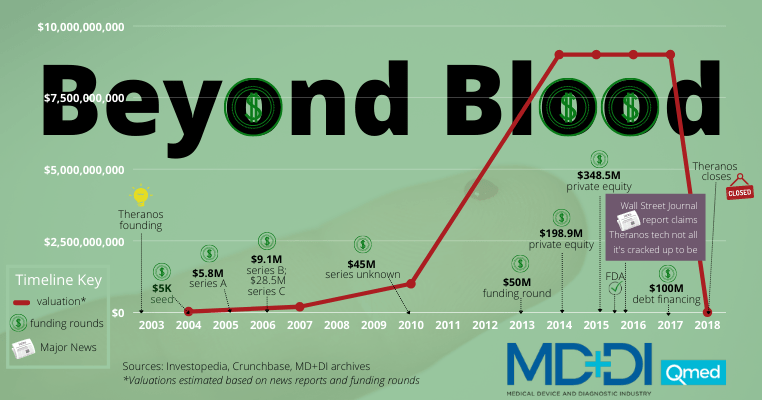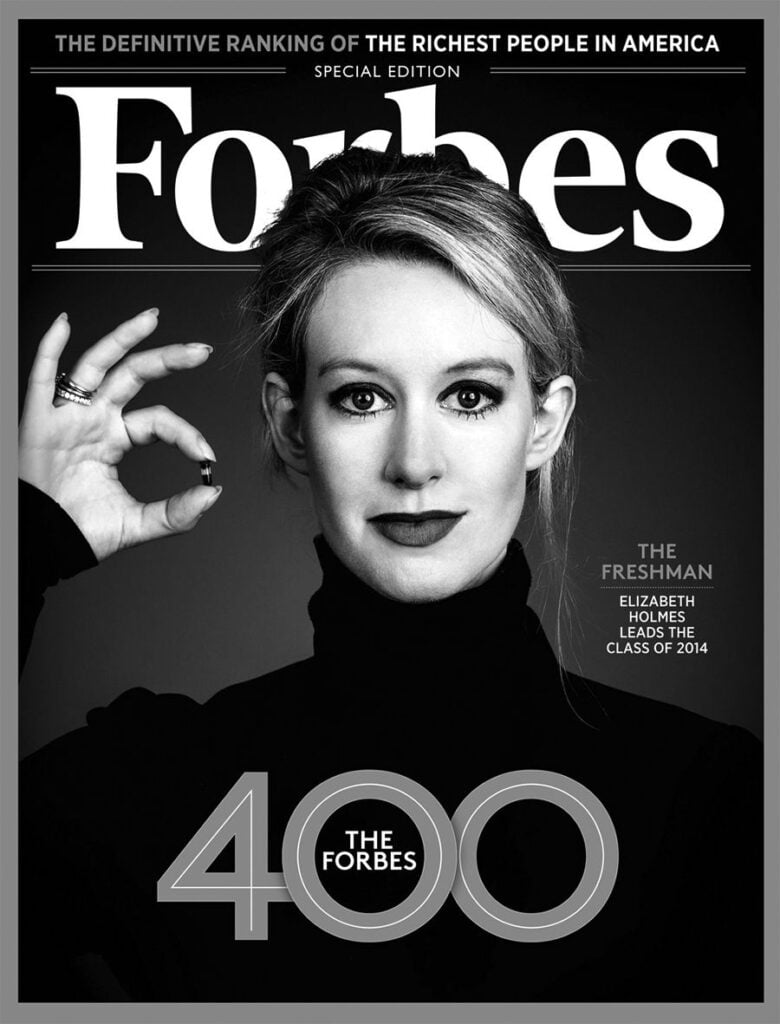Introduction: The Rise and Fall of a Revolutionary
In the pantheon of modern entrepreneurs, Elizabeth Holmes occupies a singular and controversial position. The founder and former CEO of Theranos, Holmes’ story is one of meteoric rise and precipitous fall, a tale replete with ambition, innovation, and scandal. From the heights of being hailed as the next Steve Jobs to the depths of criminal charges and public disgrace, Holmes’ journey raises profound questions about the nature of innovation, the challenges faced by women in male-dominated fields, and the often brutal realities of the entrepreneurial landscape. This article explores her career, the scandal that engulfed her company, and the broader implications of her treatment as a pioneering woman in the tech industry, with a critical eye towards the intellectual, political, and feminist dimensions of her story.

From Dream to Reality: The Early Career of Elizabeth Holmes
Elizabeth Holmes was born in Washington, D.C., in 1984, into a family with a distinguished lineage. Her father, Christian Holmes IV, worked in various executive positions within government agencies like USAID, while her mother, Noel Daoust, was a Congressional committee staffer. From an early age, Holmes demonstrated a keen interest in science and technology, spurred on by a familial environment that valued academic and professional achievement.
Holmes enrolled at Stanford University in 2002 to study chemical engineering. It was during her time at Stanford that she began to develop the idea that would eventually become Theranos. Influenced by her summer internship at the Genome Institute of Singapore, where she worked on testing for severe acute respiratory syndrome (SARS), Holmes became fascinated with the potential of microfluidics and miniaturized blood tests. The inefficiencies and invasiveness of traditional blood testing struck her as archaic, and she envisioned a future where a single drop of blood could provide a comprehensive health diagnosis.
In 2003, Holmes dropped out of Stanford at the age of 19, using her tuition money to start a company that would realize this vision. She founded Theranos (a portmanteau of “therapy” and “diagnosis”) with the aim of revolutionizing the healthcare industry through innovative blood-testing technology. Holmes’ vision was nothing short of revolutionary: a device that could conduct a wide range of tests from a minuscule amount of blood, thereby making blood testing faster, cheaper, and more accessible.



Vision and Venture: The Meteoric Rise of Theranos
Holmes’ vision quickly attracted attention and investment. Her ability to articulate a compelling narrative about the future of healthcare, combined with her unyielding belief in her mission, drew high-profile investors and board members. Theranos secured significant funding from influential figures, including Rupert Murdoch, Betsy DeVos, and the Walton family. The company’s board boasted luminaries such as former Secretaries of State Henry Kissinger and George Shultz, adding an air of legitimacy and gravitas to the burgeoning startup.
Holmes’ ability to persuade and inspire was instrumental in Theranos’ early success. She adopted the persona of a visionary leader, often drawing comparisons to tech giants like Steve Jobs, whom she admired. Holmes’ signature black turtleneck became emblematic of her commitment to innovation and disruption. By 2014, Theranos was valued at $9 billion, and Holmes, owning half of the company’s shares, became the world’s youngest self-made female billionaire.
The promise of Theranos was transformative. The company’s proprietary technology, the Edison device, was touted as capable of running hundreds of tests on a few drops of blood. This innovation promised to democratize healthcare, enabling early diagnosis and personalized treatment, thereby reducing the need for invasive procedures and lowering healthcare costs. Holmes envisioned a world where individuals could monitor their health through frequent, painless blood tests, potentially saving lives through early detection of diseases.


Unraveling the Dream: The Scandal and Its Fallout
Despite the meteoric rise, skepticism about Theranos’ technology began to surface. In 2015, John Carreyrou, an investigative journalist at The Wall Street Journal, published a series of articles that cast serious doubt on the accuracy and reliability of Theranos’ tests. Carreyrou’s investigation revealed that Theranos was using commercial machines for many of its tests, rather than its own Edison devices, and that the company’s proprietary technology was flawed and inconsistent.
The articles triggered a series of regulatory investigations. The Centers for Medicare and Medicaid Services (CMS) conducted a surprise inspection of Theranos’ labs and found numerous deficiencies that jeopardized patient safety. In 2016, CMS banned Holmes from owning or operating a laboratory for two years. The U.S. Securities and Exchange Commission (SEC) also began an investigation, eventually charging Holmes and Theranos’ president, Ramesh “Sunny” Balwani, with massive fraud for exaggerating the company’s technology and business performance.
The fallout from these investigations was swift and severe. Walgreens, which had partnered with Theranos to offer blood tests in its stores, terminated its relationship with the company. Other partners and investors quickly followed suit. By 2018, Theranos was dissolved, and Holmes and Balwani faced criminal charges of wire fraud and conspiracy to commit wire fraud.



Legal Battles: Ambition, Ethics, and Gender
The legal battles surrounding Holmes and Theranos have been as dramatic and contentious as the rise and fall of the company itself. Holmes’ trial, which began in September 2021, became a focal point for discussions about the boundaries of entrepreneurial ambition and the ethical responsibilities of business leaders.
The prosecution’s case against Holmes centered on the argument that she knowingly deceived investors, patients, and doctors about the capabilities of Theranos’ technology. They presented evidence that Holmes was aware of the limitations and inaccuracies of the Edison device but continued to promote it as a groundbreaking innovation. The prosecution argued that Holmes’ actions constituted a deliberate and sustained effort to mislead stakeholders for personal and financial gain.
Holmes’ defense, on the other hand, painted a different picture. They argued that Holmes genuinely believed in her vision and that any misleading statements were not the result of intentional deceit but rather over-optimism and the pressures of running a high-stakes startup. Holmes’ defense team also highlighted the culture of Silicon Valley, where the mantra of “fake it till you make it” often blurs the line between aspiration and fraud.
One of the most compelling aspects of Holmes’ defense was the argument that she was subjected to gender bias in her treatment by the media and the legal system. Holmes’ case raises important questions about the double standards that women in leadership positions often face. While male entrepreneurs who engage in risky or unethical behavior are frequently lauded as mavericks or disruptors, women in similar situations are often vilified and held to stricter standards.



Breaking Barriers and Facing Double Standards
Holmes’ story cannot be fully understood without addressing the gendered lens through which she has been scrutinized. The intense media focus on Holmes’ appearance, voice, and personal life underscores the double standards that women in power often encounter. Holmes’ deep voice, for instance, became a subject of fascination and speculation, with some commentators suggesting she altered her voice to be taken more seriously in a male-dominated industry. Her signature black turtleneck, while intended to evoke comparisons to Steve Jobs, was often portrayed as an affectation rather than a symbol of her commitment to innovation.
The scrutiny of Holmes’ personal relationships also highlights the gendered double standards at play. Her romantic relationship with Sunny Balwani, who was 20 years her senior and Theranos’ president, became a focal point in media coverage, often overshadowing discussions about the company’s technology and business practices. This level of personal scrutiny is rarely applied to male entrepreneurs, whose professional actions are typically evaluated independently of their personal lives.
Moreover, the narrative of Holmes as a “female fraudster” feeds into broader societal biases about women’s roles in business and leadership. Studies have shown that women are often judged more harshly than men for perceived ethical lapses, and this disparity is reflected in the way Holmes has been portrayed and prosecuted. The intense vilification of Holmes contrasts sharply with the more lenient treatment of male counterparts who have engaged in similar or even more egregious behavior.

“The Dropout”: A Feminist Critique and Cultural Reflection
The Hulu adaptation “The Dropout,” starring Amanda Seyfried, offers a nuanced and compelling portrayal of Elizabeth Holmes. Based on the podcast of the same name by Rebecca Jarvis and ABC Radio, the series delves into Holmes’ early life, her time at Stanford, the rise and fall of Theranos, and the subsequent legal battles. Seyfried’s performance brings depth and empathy to Holmes, portraying her as a complex character driven by a genuine desire to innovate, yet flawed by her ambition and the pressures of the business world.
“The Dropout” succeeds in highlighting the systemic issues that Holmes faced, including the sexism that permeates the tech industry. The series critiques the double standards that women in power often encounter, where their mistakes are magnified, and their successes are downplayed. It serves as a feminist commentary on the challenges women face when they dare to disrupt established norms and push boundaries in male-dominated fields.
The show also delves into the personal dynamics that shaped Holmes’ journey, exploring her relationships with mentors, investors, and colleagues. It paints a picture of a young woman navigating a high-stakes, high-pressure environment, making decisions that would ultimately lead to her downfall. By humanizing Holmes, “The Dropout” invites viewers to consider the broader context of her actions and the societal pressures that influence women leaders.







A Visionary Leader: The Inspiration of Elizabeth Holmes
Despite the scandal and the legal battles, Elizabeth Holmes remains an inspirational figure for many. Her story is a testament to the power of vision and the drive to create change. Holmes’ ability to raise significant capital and attract top talent to her company speaks to her skills as a leader and innovator. Her fall from grace serves as a cautionary tale, but it also highlights the brutal realities of the entrepreneurial world, where failure is often met with harsh judgment.
Holmes’ story also inspires a critical examination of how society treats women who dare to dream big. Her journey underscores the importance of supporting female entrepreneurs and recognizing the unique challenges they face. Holmes’ vision for Theranos was bold and transformative, and while the execution was flawed, the underlying aspiration to revolutionize healthcare remains a noble endeavor.

Lessons and Legacy
Elizabeth Holmes’ story is a complex and multifaceted one, reflecting the highs and lows of the entrepreneurial journey. Her rise to prominence as a visionary leader and her subsequent fall from grace offer valuable lessons about the nature of innovation, the ethical responsibilities of business leaders, and the gendered dynamics of the tech industry. Holmes’ case serves as a powerful reminder of the double standards that women in leadership positions often face and the need for a more equitable and supportive environment for female entrepreneurs.
Holmes’ legacy is still being written, and while her story is marred by scandal, it also holds the potential to inspire future generations of innovators. Her ambitious vision and relentless pursuit of change, despite the ultimate failure, highlight the importance of dreaming big and pushing the boundaries of what is possible. As society continues to grapple with the complexities of gender, innovation, and ethics, Elizabeth Holmes’ story will undoubtedly remain a touchstone for discussions about the challenges and opportunities facing women in the tech industry.


Reflection: Embracing Complexity and Championing Change
Elizabeth Holmes’ journey is a testament to the complexity of the entrepreneurial world and the multifaceted nature of innovation. Her story encourages a deeper reflection on the challenges faced by women in male-dominated fields and the societal biases that shape their experiences. By embracing this complexity and championing change, we can create a more inclusive and supportive environment for future generations of innovators, ensuring that the next Elizabeth Holmes can achieve their vision without the same barriers and pitfalls.
In conclusion, Elizabeth Holmes’ tale is one of both caution and inspiration, offering valuable insights into the nature of innovation, the ethical responsibilities of leaders, and the ongoing fight for gender equality in the tech industry. As we continue to learn from her story, we must strive to create a world where visionary leaders, regardless of gender, can thrive and make a lasting impact.






